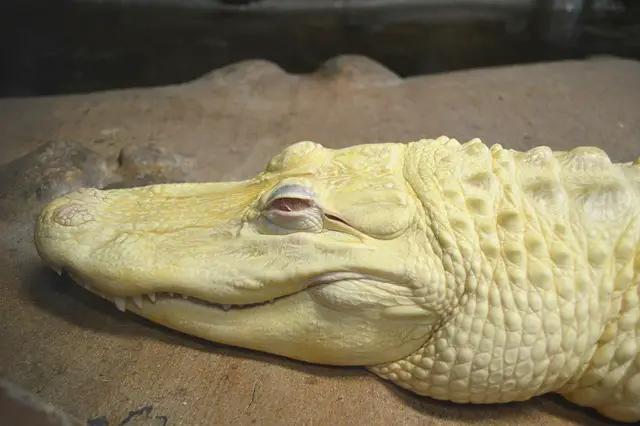Albino alligators are a rare sight. They are born without any pigment in their skin, which makes them very vulnerable to predators and the elements. So, can they survive in the wild? The answer is yes and no.
Can albino alligators survive in the wild?
Albino alligators are a unique and fascinating species, yet their survival in the wild is tricky. Due to the lack of natural protective pigmentation from their environment, albino alligators are highly susceptible to overheating and sunburn.
The white skin increases their visibility, making them easy prey for predatory animals. Since the ability to blend into the environment is essential for survival, it is difficult for albino alligators to thrive in natural habitats.
In captivity, however, they can live up to 20 years with proper care and treatment.
In the wild, albino alligators have a tough time surviving.
They are easy prey for predators because they lack regular alligators’ camouflage. The sun also poses a big problem for albino alligators. They are susceptible to sunburn and skin cancer without any pigment. As a result, most albino alligators die young.
In Captivity
However, there have been some reports of albino alligators living to be over 20 years old in captivity. In captivity, albino alligators are protected from predators and the elements, which gives them a much better chance of survival. If you’re lucky enough to see an albino alligator in person, it’s likely living in a zoo or aquarium.
Conclusion:
Albino alligators are scarce and beautiful creatures. However, they have a hard time surviving in the wild because they lack the camouflage that regular alligators have and are susceptible to sunburn and skin cancer.
If you’re lucky enough to see an albino alligator in person, it’s likely living in a zoo or aquarium where it is protected from predators and the elements.




